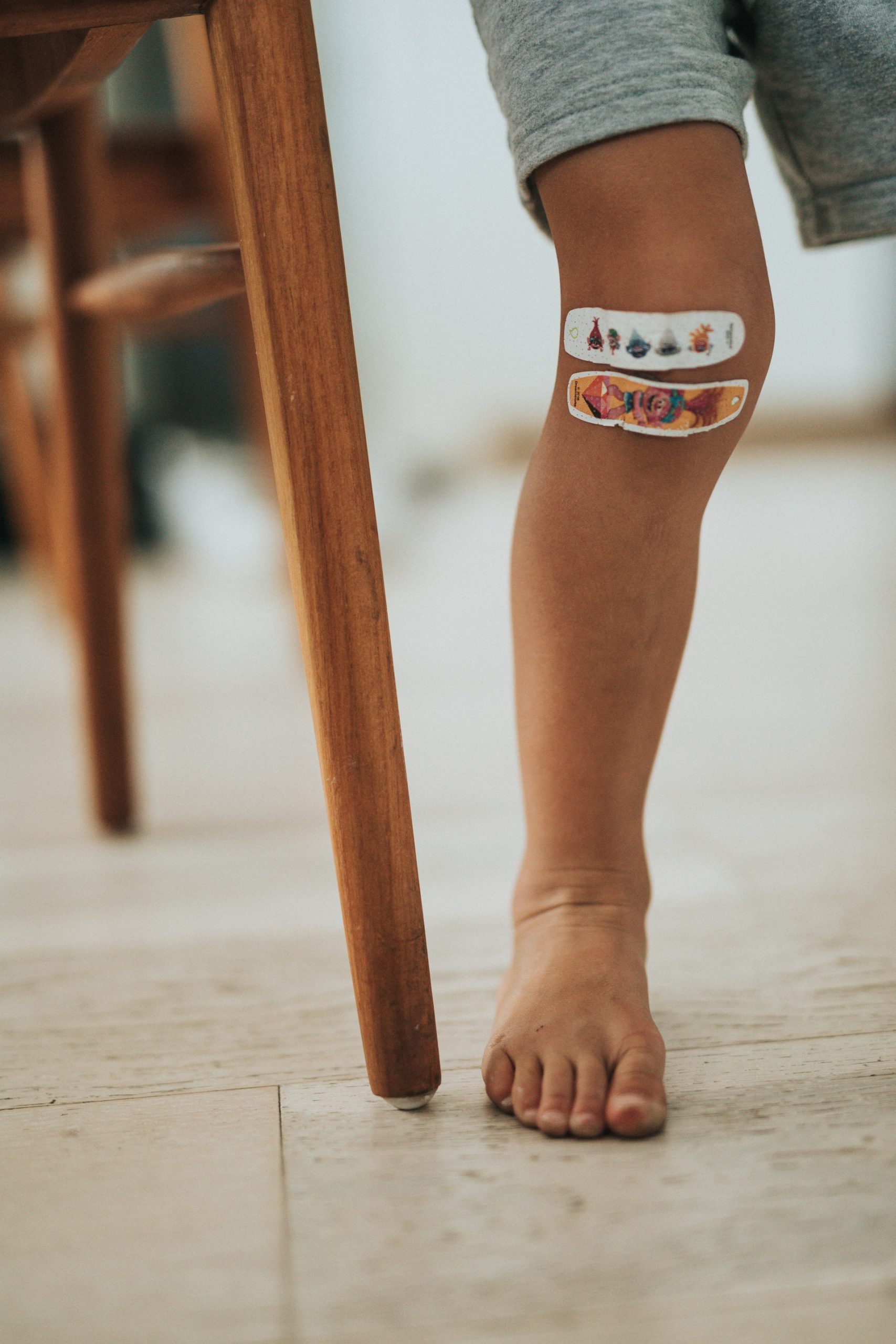5.3: Incident Reports & Biting
Incident Reports

Accidents often happen with young children when they are exploring and engaging in play. This is a very normal part of development and aids children in learning valuable lessons. ECEs are knowledgeable about potential dangers and know when a risk is manageable and can take a step back to allow a child to problem-solve.
Additional Readings
Read the following blog to learn more about the educator’s role in supporting children’s development while keeping them safe and allowing them to take manageable risks.
When a child is involved in an accident educators must first provide first aid and support to help the child. Accidents could involve a child tripping and scraping a knee, to falling and bumping their head, to more serious accidents that require medical assistance. First aid must be the initial approach to ensure no life-threatening injuries have occurred. Playground safety will be discussed later in this chapter to help prevent life-threatening injuries during play. Once first aid has been administered and the child is happily engaging in activities again, educators need to complete an incident report. The incident report needs to be shared with the child’s family who will sign to acknowledge they have seen the incident report and received a copy. Any incident needs to be documented in the classroom daily log as well.
Incident reports may be used for other situations such as biting, fighting with a peer resulting in an injury, insect bites, and many other situations. The incident report is intended for the family to be aware of situations that may have caused their child distress or may have resulted in an injury. Incident reports are kept in a child’s file in the event a pattern needs to be tracked or an injury results in something more serious in the future.
Biting
Biting in group care is common and may cause families stress, whether it is their child who was bitten or whether their child is the one biting another child or adult. There are many reasons a young child bites but most often it is to express intense feelings that they may not have the language for at a young age. A child may bite when excited to see their friend or when angry with a friend who isn’t sharing a toy. This typically happens in the toddler age group. Some children may bite often, causing stress in the learning space.
Additional Readings
Read the following blog to learn more about why young children bite and how to respond.
An incident report needs to be completed for the child who was bitten. A quick phone call to the family before pick-up time may help alleviate some of the impact of the stress upon seeing one’s child who was bitten. It is important to let the other family know about the incident as well in the event the child continues to bite other children or adults. Families may need reassurance that biting is typical for young children while they learn to cope with strong feelings and gain more language skills to communicate with others.
If a child continues to bite, additional measures may need to be temporarily implemented to prevent children from being bitten. This may require a child to be shadowed by an educator to intervene more quickly to prevent bites from taking place. Consistent responses and routines will help alleviate additional stress for the child who is biting. Ongoing communication with families is important, while respecting confidentiality. Older children who continue to bite may need additional support. A resource consultant or health care professional may be able to provide insight into why a child continues to bite.
From time to time, a bite may break the skin. This needs to be reported to public health so a public health nurse can follow up with both families. Public health will need to verify immunization records so they will ask for the children’s names, birth dates, guardian names, and phone numbers. A supervisor may be tasked with communicating this information to the local public health unit. This is a precautionary measure to rule out any transmissible diseases.
Additional Readings
- KidCheck. (n.d.). Incident Reporting—A Tool for You, The Child, The Parent. KidCheck. https://www.kidcheck.com/incident-reporting/
- Lewis, J. (2023, June 8). Serious incident report policy in childcare—Care for Kids. https://www.careforkids.com.au/blog/serious-incident-report-policy-in-childcare
- eForms (Director). (2023, April 20). Daycare Incident Report: When to Use and What to Include.YouTube. https://www.youtube.com/watch?v=fHvcQo8fM-s

